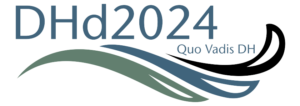Wir freuen uns, die achtzehnte Ausgabe des Rezensionsjournals RIDE, das seit 2014 vom Institut für Dokumentologie und Editorik (IDE) herausgegeben wird, anzukündigen. Die aktuelle Ausgabe ist digitalen wissenschaftlichen Editionen gewidmet und wurde von Ulrike Henny-Krahmer und Martina Scholger herausgegeben.
Der Band enthält fünf Rezensionen, eine in deutscher und vier in englischer Sprache, von folgenden Autor:innen und zu den folgenden digitalen Editionen:
-
- Werner Scheltjens: A synergistic approach to non-narrative historical sources. The database and digital edition of the Spängler household account books, 1733–1785. https://ride.i-d-e.de/issues/issue-18/spaengler/
- Lisa Dieckmann: Der Sturm. https://ride.i-d-e.de/issues/issue-18/sturm/
- Luisa Ammirati: Paolo Bufalini’s Notebook. https://ride.i-d-e.de/issues/issue-18/bufalini/
- Sarah Lang: Furnace and Fugue. A multimedia edition of Michael Maier’s Atalanta fugiens. https://ride.i-d-e.de/issues/issue-18/furnace-fugue/
- Martina Pensalfini: Catullus Online. https://ride.i-d-e.de/issues/issue-18/catullus/
Alle Rezensionen sind abrufbar unter https://ride.i-d-e.de/issues/issue-18/.
Enjoy the RIDE!


